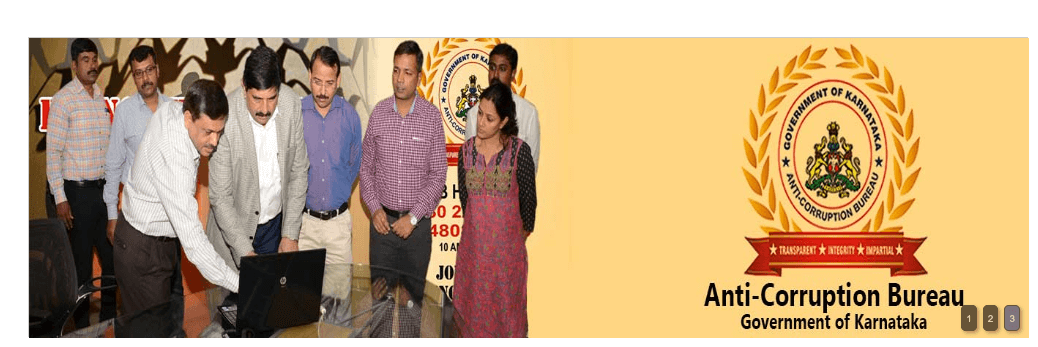
By Aratrika Dey
Do you want to take action against the ever-persisting problem of corruption? Or have you been subjected to malpractices and become a victim of corruption? Have you been asked to pay a certain sum to the police inspector assigned to you in your passport verification process to get the job done quickly? In this case, you need to know how to file a complaint with the Anti-Corruption Bureau (ACB).
The ACB unit is responsible for collecting information on corruption within the many departments under the government (against public servants and public persons) through appointed Vigilance Officers. They not only investigate but also prosecute people on charges of bribery and general corruption. The bureau works under the provisions set by the Prevention of Corruption (PAC) Act, 1988. The unit also evaluates the information or petition received from the general public and agencies, such as the Lok Ayukta. They could be specific information or verifiable allegations of corruption against public servants.

The workings of the bureau
If a complaint about bribery is lodged, the ACB verifies the allegation first. However, for every grouse that is not a trap case, an initial inquiry is conducted before an FIR (first information report) is filed. The procedure sometimes includes forensic techniques. The complainant might be asked to speak with the public servant in question, stage a conversation, (eg., “Sir, I don’t have the amount of money you are asking for, will it be possible for you to lessen the amount or would you be willing to accept the payment at a later date?”). Such conversations are recorded as evidence and the public servant has to be heard on record that they were asking for remuneration from the citizen. Once convinced, the ACB sets a trap and arrests the offender during the corrupt act.
Apart from implementing these methods, the bureau also follows three kinds of inquiries into filed cases: regular inquiries, discreet inquiries, and surprise checks. Usually, action is not initiated on anonymous or pseudonymous complaints. Therefore, know what you are trying to say and try to substantiate your grievance with details. Keep your grouse to the point and crisp. Applications that contain verifiable and specific allegations are looked into.
Recent raids of ACB
After a public complaint was filed by TJ Abraham (President of Anti-Corruption and Environmental Forum), the ACB raided KAS officer B Sudha’s house in the city last month. They found bags full of jewelry, cash worth rupees 10 lakhs, and real estate documents. The haul consisted of assets that amounted to much more than Sudha’s salary could have afforded. In September this year, the ACB raided the houses of four BBMP officials involved in a failed waste-to-energy plant in Mandur. In May this year, the ACB raided suspended assistant commissioner of police Prabhushankar M in Sahakaranagar, police inspectors Ajay RM residing in HRBR Layout, Niranjan Kumar’s house in Basaveshwaranagar and their CCB office near Mysore Circle.
How to file a complaint with the ACB
Any citizen, irrespective of circumstance, can complain with the bureau at both the city and district level. The process is similar to filing an FIR at a police station. In Bengaluru, you can approach the Deputy Superintendent of Police/Inspector of Police or senior officers at the Head Office of the ACB at Khanija Bhavan on Race Course Road.
Preferably, the complaint should be a written one or typed out by the complainant. Stamp fees or any other payments are not required while filing. If the complainant is literate, their signature must be taken at the end of the letter. If the person levelling an allegation is illiterate, they can get their grouse written by a scribe whose name and address should also be mentioned at the end of the petition. Additionally, the scribe should verify that the contents of the application were discussed with the complainant and was found to be factually correct. Lastly, the complainant should give their left thumb impression at the end of the letter. Written complaints can also be sent by post (preferable registered post, so you get an acknowledgement that your letter is received).
The contact numbers
The office of the ACB or their officers can also be contacted on phone. The bureau has a helpline number (1064), a landline (080-22342100), and a mobile number (+91 94808 06300). The contact numbers of various superior officers from the Bangalore City office, Bangalore Rural office, and other offices can be found on the Contact Us page of the Karnataka Government’s ACB web portal.
And finally…
Remember, the law states that any criminal misconduct by a public servant, who habitually asks for and accepts bribes, misappropriates public property, abuses their position of power, can be jailed for up to 10 years. So when you witness such blatant abuse of power from someone who is supposed to help the public, promptly report it to the right authorities, such as the ACB. Complaining is better than keeping shut and putting up with corruption. Every petition counts. Don’t give up the fight for your right. Make the most of agencies like the ACB.



